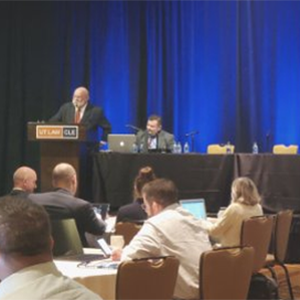
eCourse
Litigating in a Divided Nation: Handling Strong Political Views During Trial
Contains material from Jan 2020
I thought it would give some solutions to the problem but it just identified the problem
Too skewed politically
Interesting presentation. Very energetic.
I like this speaker and his topic, but would prefer some helpful hints and concrete examples of how to actually use the info. Much of the topic he covered in other CLE courses I took, which is ok, but sometimes he skipped over things that could have stood more attention. All in all, he is very good on a topic I find very interesting.
Technical Questions?
512.475.6700
service@utcle.org
Includes: Video Audio Slides
Preview Sessions
Show session details
Claude E. Ducloux
Download session materials for offline use
Session 1
—42 mins
Litigating in a Divided Nation: Handling Strong Political Views During Trial (Jan 2020)
In seeking justice, lawyers now must navigate intense divisions in our state and nation. What interpersonal skills and strategies can you use to identify divisive attitudes, and neutralize dangers like manipulation and polarization? Learn these concepts and how they differ from classic theories of conflict resolution.
Originally presented: Nov 2019 Civil Litigation Conference
Claude E. Ducloux,
Attorney at Law - Austin, TX